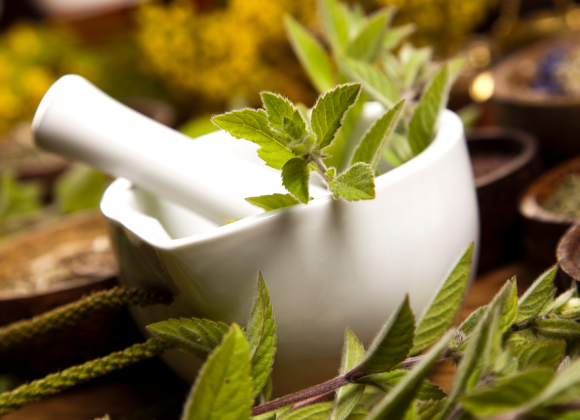Red wine has long been celebrated for its rich flavor, cultural significance, and more recently, its potential health benefits. From Mediterranean diets to dinner tables around the world, a glass of red wine has earned a reputation as a “heart-healthy” indulgence. But how much of that is rooted in science — and how much is wishful thinking? Can a daily glass really improve your health, or are we just looking for an excuse to enjoy a drink guilt-free? In this blog, we’ll uncork the truth behind moderate red wine consumption, explore what “moderate” really means, and help you understand how to enjoy red wine responsibly and healthfully.
The Science Behind the Hype
Much of red wine’s health reputation comes down to one powerful compound: resveratrol. This natural antioxidant is found in the skin of red grapes — and since red wine is fermented with grape skins longer than white wine, it contains more of it. Research has linked resveratrol to several health benefits, particularly when it comes to cardiovascular health.
Here’s what the science suggests:
- Heart Health: Resveratrol may help reduce LDL (bad cholesterol) and increase HDL (good cholesterol), supporting a healthier cardiovascular system.
- Antioxidant Action: It helps fight oxidative stress, which contributes to aging and chronic diseases.
- Anti-Inflammatory Effects: Moderate red wine consumption may help reduce inflammation, a root cause of many modern illnesses.
- Improved Circulation: Some studies indicate it may improve the function of the endothelium — the lining of blood vessels — helping regulate blood pressure and clotting.
However, it’s important to note that many of these studies are observational or conducted on animals, meaning the direct impact on humans still needs further exploration. And — spoiler alert — you’d have to drink a lot of red wine to get the same amount of resveratrol used in lab experiments… which would cancel out the health benefits entirely.
So, What Is Moderate?
When it comes to red wine, moderation is everything. The key to enjoying its potential health perks without the drawbacks lies in how much you drink — and how often.
According to health guidelines from the World Health Organization (WHO) and the Centers for Disease Control and Prevention (CDC), moderate alcohol consumption is defined as:
- For women: Up to 1 glass per day
- For men: Up to 2 glasses per day
Here, one glass means 5 ounces (about 150 ml) of red wine with around 12% alcohol content.
🔁Important note: This doesn’t mean saving up for the weekend and drinking all your “daily” glasses in one night. That’s binge drinking, which actually increases health risks rather than reducing them.
What Happens If You Go Overboard?
Sure, a glass of red wine might come with some perks — but once you cross that “moderate” line, the risks start stacking up fast.
1. Heart Risks Instead of Heart Health
While moderate drinking may support heart health, heavy or binge drinking can actually increase your risk of:
- High blood pressure
- Irregular heartbeat
- Cardiomyopathy (a condition where the heart muscle weakens)
2. Empty Calories Add Up
Red wine is calorie-dense, and excessive drinking can lead to weight gain, especially around the abdomen — a major risk factor for metabolic diseases.
3. Liver Damage and More
Too much red wine can overwhelm your liver, leading to:
- Fatty liver disease
- Hepatitis
- Cirrhosis (long-term liver scarring)
Who Shouldn’t Drink Red Wine?
While red wine can be part of a healthy lifestyle for some, it’s not suitable for everyone — and in certain cases, even a little can do more harm than good.
Here are groups of people who should avoid red wine (and alcohol in general):
- Pregnant Women: Alcohol consumption during pregnancy can lead to fetal alcohol spectrum disorders (FASD), which may cause lifelong physical and developmental issues in the baby. The safest choice? No alcohol at all.
- Those with a History of Alcohol Use Disorder: If you have struggled with alcohol dependence in the past, even moderate drinking can be a slippery slope. It’s best to avoid alcohol entirely and focus on healthier habits.
- People on Certain Medications: Blood thinners, Sedatives or antidepressants, Diabetes medications, Antibiotics.
- Individuals with Liver Disease
- People with Certain Health Conditions: Gastrointestinal issues (like acid reflux or ulcers), Pancreatitis, Migraines, especially in people sensitive to sulfites or tannins.
Is Red Wine Essential for a Healthy Lifestyle?
Here’s the honest truth: you don’t need red wine to be healthy.
Yes, red wine can offer some benefits — primarily due to antioxidants like resveratrol — but these same compounds can also be found in grapes, berries, peanuts, and even dark chocolate. You can support your heart, boost antioxidants, and reduce inflammation through a balanced diet, regular exercise, and stress management — no alcohol required.
So, if you already enjoy a glass now and then and have no medical restrictions, there’s no harm in continuing — in moderation. But if you don’t currently drink, there’s no reason to start just for the sake of your health.
In fact, some of the healthiest populations in the world — like those in Blue Zones — thrive on:
- Whole foods (think fruits, vegetables, legumes, whole grains)
- Strong social connections
- Active lifestyles
- Moderate stress and good sleep
Author’s View
As someone who appreciates both wellness and a good glass of red now and then, I believe the key is mindfulness — not just with alcohol, but with all lifestyle choices. Red wine can be a pleasant part of a meal, a social ritual, or a way to unwind — and yes, it may even offer some health perks when consumed moderately.
But it’s important not to romanticize it as a miracle drink. The real foundation of health lies in everyday habits: balanced eating, regular movement, meaningful connections, and good sleep.
If red wine fits into your lifestyle without compromising your well-being, enjoy it responsibly. And if it doesn’t? That’s perfectly okay too — you’re not missing out on any magic elixir. Health is a holistic journey, and there’s more than one path to get there.




